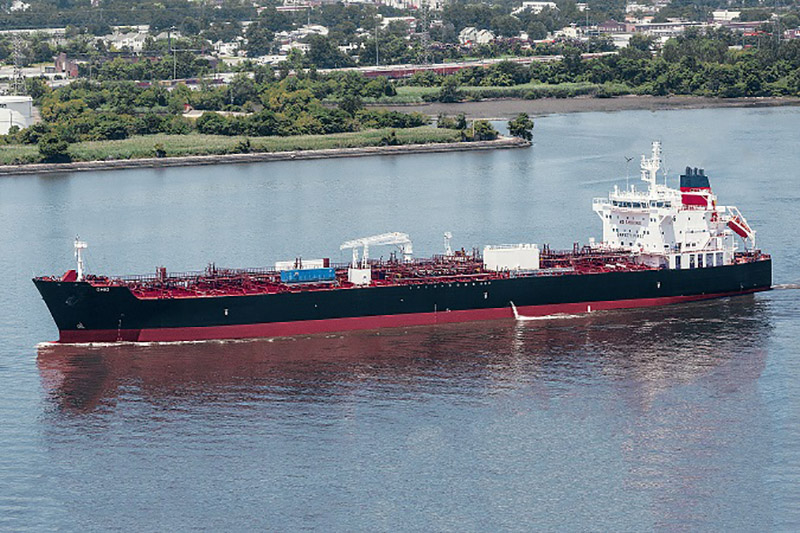The U.S.-flag merchant fleet needs support in recruiting and training a new generation of mariners, and stronger government support for the Jones Act and cargo preferences to maintain its foreign trade capability, industry advocates told Congress Wednesday.
The House Subcommittee on Coast Guard and Maritime Transportation kicked off its 2018 proceedings with a big-picture look at the state of the U.S. industry, with testimony from the bluewater sector, offshore industries and shipbuilders.
At the hearing, industry experts struck some upbeat notes, remarking on its capable response to hurricane emergencies in Puerto Rico, Florida and Texas, and levels of activity in U.S. shipbuilding.
But big concerns are out there: the prolonged downturn in the offshore industry, a shrinking pool of highly experienced U.S. mariners, and the shrinkage of the U.S.-flag foreign trade fleet. There are some 41,000 U.S.-flag vessels in trade, but the bluewater share has fallen from 106 ships in 2011 to 79 vessels today.
That in turn “has resulted in a drastic reduction in the pool of available mariners needed to meet DoD (Department of Defense) requirements” said Bill Van Loo, secretary treasurer of the Maritime Engineers’ Beneficial Association, in testimony to the subcommittee.
With military planners anticipating a potential shortfall of 2,000 merchant mariners in wartime, “any assumption on the number of civilian mariners available should be considered a bare minimum and we should seek to enact policies and programs that will increase the pool significantly,” Van Loo said.
Van Loo and others spoke of recruiting young people to the industry — particularly military veterans through programs that help them transition into civilian maritime careers. But those new entrants must not be discouraged by a lack of government support and dimming prospects, they said.
One thing Congress could do is restore to U.S. flag shipping 75% of the government Food for Peace foreign aid shipments, which were reduced to 50% in 2012. Food aid is now the single biggest source of preference cargo from government programs, and moving the share back to 75% would cost taxpayers around $11 million a year, according to industry advocates.
Cargoes declined with the shrinking U.S. military footprint in Afghanistan and Iraq, speeding some negative trends since 2012, according to Eric P. Ebeling, president and CEO of the American Roll-On Roll-Off Carrier Group Inc. The New Jersey-based company operates eight U.S.-flag ro/ro vessels, including the newest Patriot and Liberty launched in 2016 and 2017, and is the third-largest U.S. company in international trade.
“Declining cargoes resulted in a shrinking fleet, which led to a shortage of qualified mariners, and these factors in turn impacted national defense readiness in terms of sealift and logistics support available to support the needs of the Department of Defense,” Ebeling testified. “Congress has passed smart new maritime policies in recent years, and the fleet has now started to stabilize. “
Cargo preferences have been federal policy for well over a century, Ebeling said, and asked: “Why not require 100% of all government-owned or financed cargoes to move on U.S.-flag ships?”
The Jones Act — the shorthand reference for the Merchant Marine Act of 1920 — came under fire in the days after Hurricane Maria struck Puerto Rico. Advocates for the commonwealth and longtime critics of the Jones Act portrayed the law’s requirement for goods shipped between U.S. ports to be carried in U.S.-built and crewed vessels as hampering relief efforts.
The industry and its allies in Congress turned back that narrative, said Matt Woodruff, the new chairman of the American Maritime Partnership. Woodruff is also vice president of public and government affairs for Kirby Corp., Houston.
“Today, we can say without equivocation that the Jones Act fleet was and continues to be a major part of the recovery effort, which FEMA is calling ‘the largest sea-bridge operation of federal disaster aid in FEMA history.’ I want to personally thank you, other members of this subcommittee, and your excellent staff for helping to address the misinformation and bring America the truth,” said Woodruff.
Supporting the Jones Act is critical to the U.S. shipbuilding industry and its 110,000 workers, said Matthew Paxton, president of the Shipbuilders Council of America. They are delivering a new generation of Jones Act petroleum tankers, LNG carriers and container ships, but much more is coming out of those yards, he said.
“A common misconception however is that without large vessel construction, the U.S. shipyard industry is dormant — however nothing could be further from the truth. In 2015 our industry delivered 1,438 Jones Act vessels and 1,329 in 2016,” according to Paxton. “We expect this infrastructure to continue supporting the expanded investment in marine transportation, including ferries and passenger vessels, commercial fishing fleets and the inland barge market. Recent announcements regarding the construction of 100,000-barrel ATB’s again demonstrate the Jones Act is working as intended to support our domestic commercial market.”
"Consistent enforcement of the Jones Act is critical," he said.




